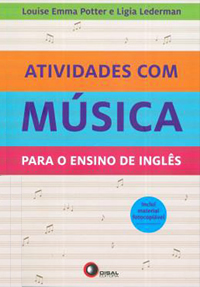By - Henrick Oprea

In Brazil, the school year starts together with the calendar year. This means that by the end of January, students and teachers will have a chance to start afresh. It's a new beginning, and as such, it's always a chance for you to do something different. It's a chance for you to try out new tricks and activities, perhaps have a new perspective on a content you might teach in the very beginning of the year. It's a year full of possibilities; that's the magic that new beginnings have on us. We believe that just because we've turned a new calendar leaf, we can also instantly turn a leaf on the book of our professional lives as well.
Those who have been in the field of education for a little bit longer know that the feeling of the new soon fades away and gives turn to the same old things that teachers and students have to do year in, year out. The chance to try out new activities is soon replaced by the rush to finish the content in the schedule due to time restraints. Tic-tac, tic-tac, tic-tac. The clock never stops ticking and education has become a business measured by the efficiency of teachers who are able to crunch as much content in the reduced slot that is available. Students are also told that's how the game should be played, so they don't particularly enjoy doing anything out of the ordinary after a while. "What's the point? I just need to score a high mark on a test anyway," they question. And, more often than not, the school teacher knows that's the case.
How can we avoid this cycle of excitement-resignation-frustration every school year? It's hard enough to try and change the activities, the pace, the length of classes, the coursebook, the parent's expectations and many other factors. These are really hard to change because, well, they just don't depend on you alone. So, what if, your new thing this year were to focus on everything that you can change and stop worrying about those things which you can't change? Perhaps you'd be able to stop setting high expectations and believing you're going to beat the system and just learn how to bend the rules to your advantage.
I'd recommend focussing on the one thing you have control over: the relationship you'll build with your students. There's nothing more powerful for learning than trust. But how do we build that? We've all had training sessions in which they mention the magic word - RAPPORT - and we just have to pretend we understand it. Then teachers go to their classrooms and do what they understood from that. "I have to be friends with my students." Just like this is not true for the relationship between parents and kids, it's not true for the relationship between teachers and students. You're not their friends, and, most importantly, that's not what you're there for. So what on earth does rapport mean, anyway?
According to Daniel Goleman, "rapport demands joint attention - mutual focus." This is probably the best way to start building your relationship with your students: what is the expected outcome of your meetings with them? What comes out of this relationship might even be a new friendship, but that can never be the goal on its own. Nor can we be naïve to the point that we believe that friendship will overcome any shortcoming in their learning due to our lack of assertiveness and feedback. "The ingredients of rapport begins with total shared focus between two people," Goleman continues, "such a shared focus with the teacher puts a child's brain in the best mode for learning."
How do you plan to work on this idea with your learners? You see, this is a question that can only be answered by you. You are in the classroom with them, you are the one who knows the curriculum, you are the specialist. How will you make sure that you're able to get your students to understand you two will be walking alongside each other to help them reach their objectives? I've got one piece of advice that seems to work quite effectively.
My piece of advice is focussing on the individual instead of on the content you ought to teach. The content is secondary as you will never get your learners to stick with you through all the hardships of their learning journey if they don't believe that you see them as their responsibility. Start by paying attention to them in their essence. Ask genuine questions, remember what their likes and dislikes are. This shouldn't be such a complex task. After all, "we are biologically programmed to find other human beings the most important objects in the world" (Csikszentmihalyi, Mihaly). It's all a matter of letting go of all the control that teachers feel they ought to have and remember that first and foremost, there are two (or more) human beings in the classroom, not two different roles.
One thing I constantly remind myself is that "as parents , teachers , and coaches , we are entrusted with people’s lives . They are our responsibility and our legacy" (Dweck, Carol). Yes, you're very likely to build a very solid relationship that will endure the trial of time. I am fortunate enough to have become friends with students of mine, but mostly I believe I've built a relationship of mutual respect and admiration. This was never the goal. It just happened because I decided to put their learning in the first place and use all the tools and knowledge I had in order to help them. Regardless of a tight schedule, regardless of all the problems that we go through during a school year, we are the ones who ultimately decide how we're going to let external factors affect us. And we alone can choose to take the bull by the horns and actually do something about the problems so they become mere nuisances. What if you did that?
Reference:
Daniel Goleman. Focus
Csikszentmihalyi, Mihaly. Flow: The Psychology of Happiness
Dweck, Carol. Mindset: The new psychology for success
Bio:
Henrick Oprea has been working in ELT since 1997. He is the current president of BRAZ-TESOL, vice-president of the BRAZ-TESOL TD SIG, and he has been actively involved in teacher training and professional development since 2003. He is an independent education consultant based in Brasília, the capital of Brazil. He's already been a school owner, DoS, high school principal and a University lecturer at undergraduate and post-graduate levels. His mains areas of interest are teacher education, use of technology in education and cognitive neuroscience. He holds a B.A. in English and literature from UnB and a postgraduate degree from the University of Birmingham. He has also authored a series of books for high school students. You can also read his thoughts on education at http://hoprea.wordpress.com.
LIVRO RECOMENDADO
